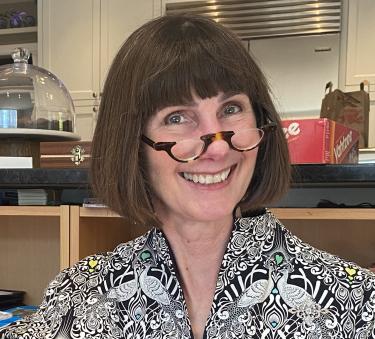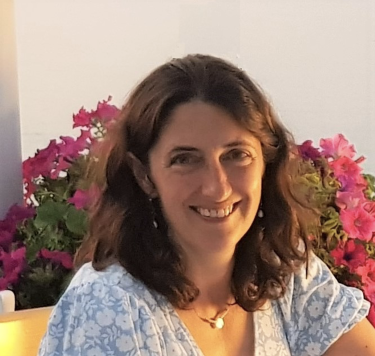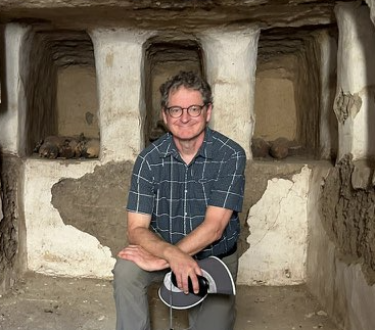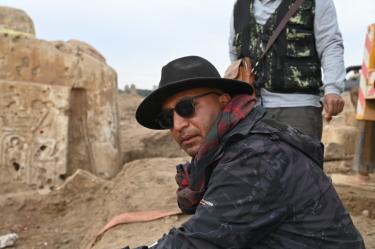2024 Fountain Symposium Participants

Yvona Trnka-Amrhein studied at Harvard (AB and PhD) and Oxford (MSt). She researches the culture of Ptolemaic and Roman Egypt with a focus on literary papyrology (the study of ancient books). She has recently written about Ptolemaic narratives of city foundation and Ptolemaic musical culture, and she is working on a book about how histories of the Pharaonic past and traditional Egyptian narrative patterns were transformed for political purposes in texts from Ptolemaic and Roman Egypt such as the Oracle of the Potter, The Sesonchosis Novel, and The Alexander Romance. She co-directs the City of the Baboon Project at Hermopolis Magna which is excavating and restoring the Greco-Roman city center, the 5th century Basilica Church, and a Temple of Ramesses II that was redecorated under the Roman Emperor Nero.

Paul Schubert is Professor of Greek at the University of Geneva. He studied at the Universities of Geneva, Oxford and Heidelberg. From 1993 till 2004, he was professor of Greek language and literature at the University of Neuchatel, while also teaching Greek papyrology at the University of Geneva, where he has held the Chair of Greek over the past twenty years. His field of research is first Greek papyrology, both literary and documentary. Paul Schubert also publishes articles in various fields of Greek literature, from Homer to the Greek novel. He is particularly interested in Greek poetry of the early Roman Empire. In recent years, he has published an edition – with commentary – of the fragments of Anoubion, a Greek poet and astrologer from Egypt. He is currently involved in a research project pertaining to the typology of documentary papyri. He is President of the International Committee of Papyrology, the executive organ of the International Association of Papyrologists.

Sarah Iles Johnston is the College of Arts and Sciences Distinguished Professor of Religion and Professor of Classics at The Ohio State University. She has published several scholarly monographs on ancient Greek myths and religions, including The Story of Myth (2018). She has also written a book for the general public in which she retells ancient Greek myths for adult and teenage readers, called Gods and Mortals: Ancient Greek Myths for Modern Readers (2023), which is now being translated into five other languages. She is currently writing a scholarly monograph on the goddess Hecate and a second book for the public called Arachne's Threads: Why Myths Mattered to the Greeks and Still Matter Now (forthcoming 2025).

After her first book on the Athenian Adonis Festival (The Athenian Adonia in Context), Lauri Reitzammer turned her attention to tragedy, and she has since published essays on Sophocles, Euripides’ Bacchae, and Euripidean choral odes. She also recently published an essay on a modern adaptation of Euripides Medea (Luis Alfaro’s Mojada). She is currently finishing her second book on theôria (sacred sightseeing) in Athenian drama, which includes chapters on several of Euripides' plays (Ion, Bacchae, and Phoenician Women). She is co-editing the New Euripides volume along with John Gibert and Yvona Trnka-Amrhein. Lauri will deliver a talk titled "Ino and the Earth: An Ecocritical Reading," in which she discusses the role that environmental elements play in Ino's narrative, focusing on Ino's interventions in both the vegetal and human realms.

Laura Swift studied at Magdalen College Oxford. After holding a Junior Research Fellowship in Trinity College Oxford, a Leverhulme Early Career Fellowship at University College London, and teaching at the Open University for ten years, she returned to Magdalen, where she is Tutorial Fellow in Classics. She teaches broadly in Classics, and her writing and research focus on archaic and classical Greek poetry, especially lyric and tragedy. She is the author of the first complete commentary on the seventh-century BC poet Archilochus (Oxford, 2019) and editor of the Wiley-Blackwell Companion to Greek Lyric (2022). Her first book, The Hidden Chorus (Oxford, 2010), argues for the importance of choral song and reads the tragic genre with as much emphasis on the musical contexts of fifth-century Athens as scholars have traditionally placed on historical or political ones. She has published an introduction to tragedy and a Companion to Euripides’ Ion. She has recently co-authored (with William Allan) a Cambridge “green and yellow” edition of Euripides’ Bacchae. She has worked with contemporary theatre-makers on their process and practice, as you can read here, or watch in this micro-documentary.

John Gibert studied at Yale (BA), Harvard (PhD), and Munich. He joined CU Classics in 1992. He studies archaic and classical Greek poetry, especially tragedy, satyr play, and comedy. His Cambridge “green and yellow” edition of Euripides’ Ion appeared in 2019, and he is also the author of Change of Mind in Greek Tragedy (1995) and co-author (with Christopher Collard and Martin Cropp) of Euripides: Selected Fragmentary Tragedies II (2004). He has published articles, book chapters, and reviews on a variety of topics. He enjoys being involved in contemporary productions of ancient plays, and he has collaborated with the DCPA and CU’s Department of Theatre and Dance. At CU, he teaches Greek language and literature at all levels and lecture/discussion classes on Greek and Roman Myth, Greek and Roman Epic, Greek and Roman Tragedy, Gender and Sexuality in Ancient Greece, and others. He has served on various editorial boards and as Chair of the Department of Classics.

Basem Gehad studied archaeology and archaeological conservation at Cairo University (BA, MA and PhD). His research focuses on the painting and funerary culture of Ptolemaic and Roman Egypt. He is head of the Central Training Unit at the Egyptian Ministry of Tourism and Antiquities and currently directs excavations at the Philadelphia Necropolis. He has co-directed excavations at Shams el Din and el Bagawat in the Kharga Oasis and currently co-directs the City of the Baboon Project at Hermopolis Magna that is working to understand and conserve an important ancient city. He has co-edited a volume on the Science of Ancient Egyptian Materials and Technologies (2022) and is editing the archaeological reports from the Philadelphia Necropolis Project (Vol. 1 to appear in 2025 and Vol. 2 in preparation). His next projects include an exhibition of the new finds from Philadelphia in the Greco-Roman Museum in Alexandria.
Note: Dr. Gehad is included here as discoverer and co-first-editor of the papyrus. He will not be able to join us in Boulder for the symposium.

